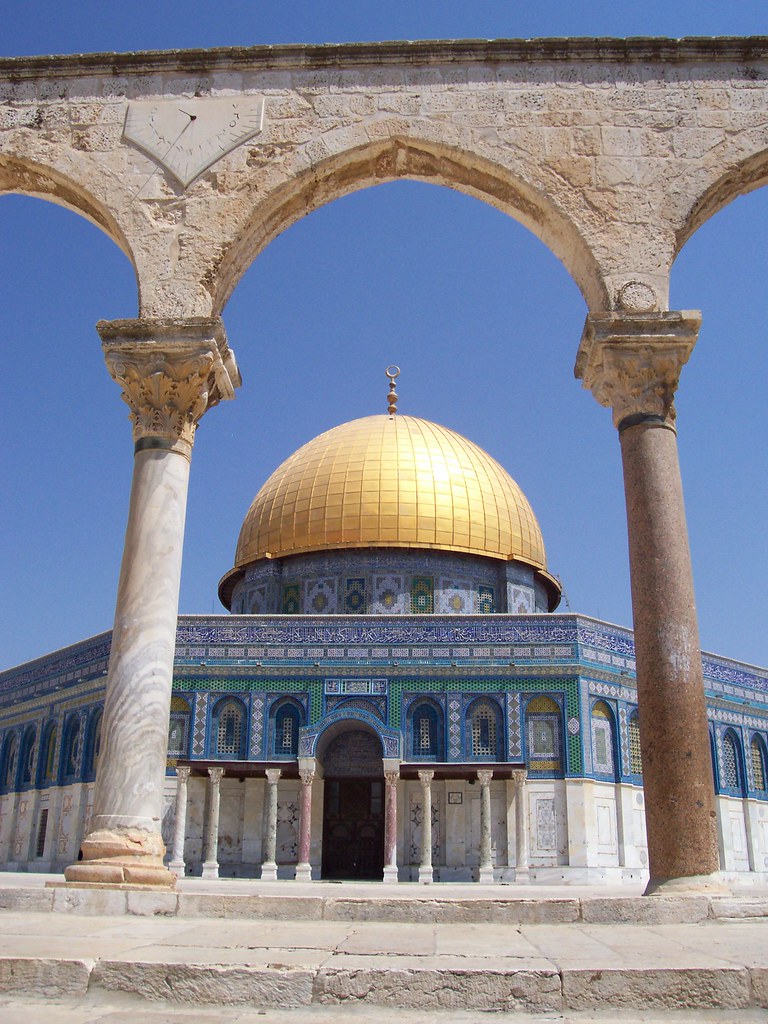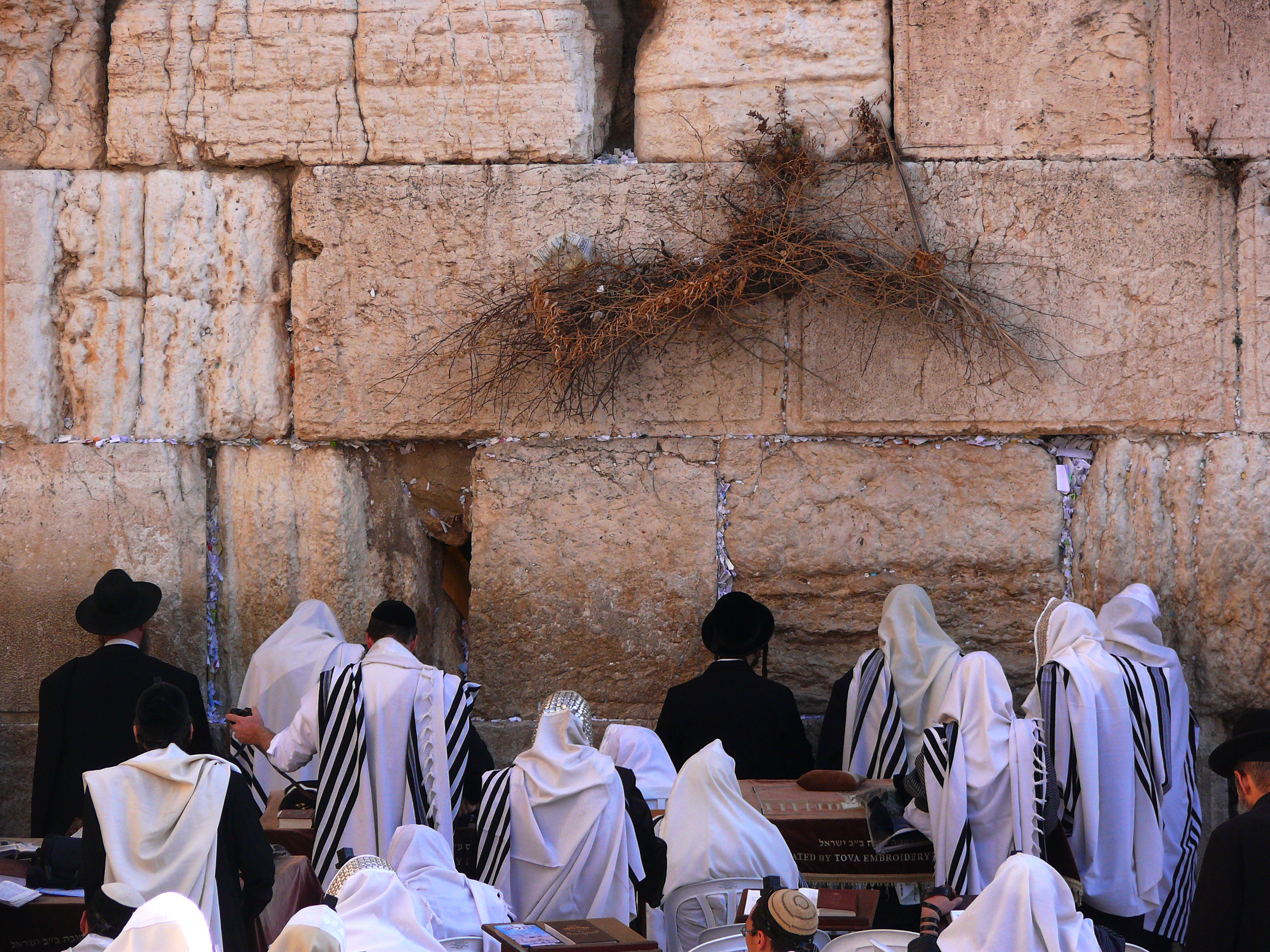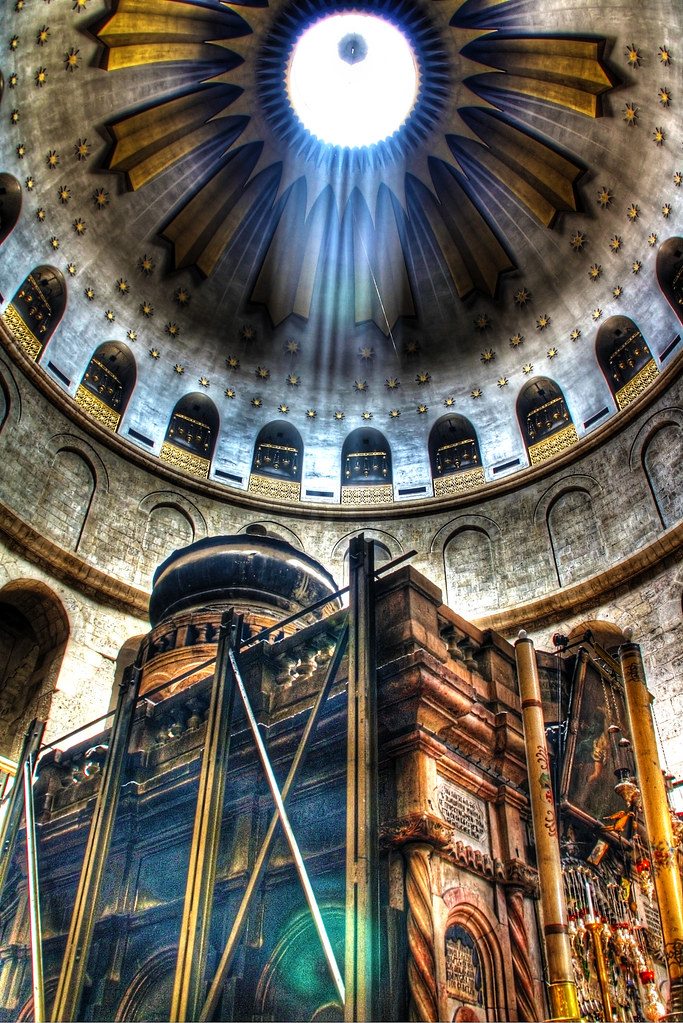
Mohammed Ali Amla, Youth & Partnerships Director at SNS, offers an introduction to our work, and we hear from three of our speakers about what the city of Jerusalem means to them, and their respective religious and personal identities. This article originally appeared in the RE Today Magazine.
Teaching Israel–Palestine is a sensitive subject, often provoking strong emotions within teachers and students; the conversation in communities is polarising, feeding tensions, antisemitism and Islamophobia. The escalation of violence in the region in May–June 2021 amplified these sensitivities, causing antisemitism and Islamophobia to increase exponentially. Social media highlighted a number of examples of how not to teach Israel– Palestine and some students faced overly punitive measures for wanting to express their political views. The challenge is: how can Israel–Palestine be taught impartially without depoliticising young people, while giving them the political literacy and the tools to engage in dialogue without feeding antisemitism and Islamophobia, and taking a solutions-focused approach to activism?
The starting point is to acknowledge that all educators have their own political opinions. It is essential for educators to better understand themselves as leaders, while creating opportunities to explore their own bias and prejudice, be that explicit or implicit. Teacher training is one of the many ways Solutions Not Sides (SNS) supports educators.
SNS is an education charity working in 200-plus schools across Britain, reaching over 8,600 young people and providing humanising encounters, diverse narratives and critical-thinking tools in order to empower them with the knowledge, empathy and skills to promote dialogue and conflict resolution, and to challenge prejudice in the UK. The youth education programme (YEP) intervenes in a cycle of partisanship and intolerance by supporting young people to develop empathy for individuals, Palestinian and Israeli, as fellow human beings. In the current political climate of simplistic binary debates, win/ lose objectives, polarisation and rising racism, it is vital for the next generation of British citizens to develop the capacity to embrace and celebrate our diversity, and the skills to navigate difference.
The theory of change underpinning SNS is the central presence of young Palestinian and Israeli peace activists as speakers for the project. Responding to the pandemic, we have created a number of broadcast-quality films which are shown in the classroom, followed by video-calling our speakers for question-and-answer sessions, alongside our traditional model of bringing in speakers face to face. The experience of meeting ordinary young people from Israel and Palestine, similar in age, produces real attitudinal change, helping to tackle antisemitism and Islamophobia.
To book one of our workshops, visit solutionsnotsides.co.uk/schools
Below, three peace activists who have all volunteered with SNS in British schools explore the importance of Jerusalem to them. Israel–Palestine is such a rich tapestry, with Jews, Christians, Muslims, Druze, Samaritans, Baha’i and others. Each of the Abrahamic faiths featured in this article includes a diversity of views on religion, faith, spirituality and politics. Each contributor has expressed their own personal views and opinions, each representing themselves rather than being spokespeople for their communities or religious traditions.
SNS has created Israel–Palestine guides, entitled ‘Avoiding Antisemitic & Islamophobic Hate Speech’, ‘Guide to Creating Safe and Compassionate Spaces for Learning’ and ‘Understanding Triggers During Dialogue’.
If you would like to learn more about the work of SNS please contact me at [email protected]
Mais - Muslim | Palestinian, Nablus
I come from a religious, Muslim and Palestinian background. This might explain why Jerusalem means so much to me: ‘the first of two Qiblah and the third of the two Noble Sanctuaries, Jerusalem the cradle of the three monotheistic religions’. I grew up believing that Jerusalem is the most sacred place on Earth, and it must mean as much to Muslims as the Ka’aba does; it means even more to me.
Jerusalem: the first picture that comes to my mind is Al-Masjid Al Aqsa, everything behind the walls of the haram, Al-Qibli mosque, the Dome of the Rock and 14,000 square metres of courtyards. The third holiest site in Islam, first built by the Prophet Ibrahim. It was demolished during the conquests of Jerusalem and rebuilt. In 691, the Dome of the Rock was built by Abd al-Malik ibn Marwan.Sometimes I forget that Jerusalem is a city, not just a mosque – it’s old souks, people and special food on every old street. Is it because of the way it has always been presented to me? Or is it because of how close to God I feel when I’m there?
The journey to Jerusalem is not the same for all; the obstruction of movement Palestinians face and the restricted access to the holy city mean visiting becomes more than a two-hour drive. If I am lucky enough to get a permit from the Israeli authorities, I still must be patient and bear the humiliation, even danger, expecting how hard the journey might be yet hopeful enough to go. Other nationalities, on the other hand, don’t deal with the hardships that I have to face.
With the birth of the Israeli–Palestinian conflict, Jerusalem is at its heart; it has been violated, and always talked about but never agreed upon. Palestinians in occupied East Jerusalem (Jerusalemites) are not just treated as second-class citizens, but also discriminated against in all aspects of life, and due to this treatment tension remains high.
The escalations in the Sheikh Jarrah neighbourhood underscore the centrality of Jerusalem in the conflict. The Israeli government did not just abuse families and attempt to ethnically cleanse the neighbourhood, but tried to shut the Palestinians out by violently attacking the worshippers in Al-Aqsa in the midst of Ramadan. For me, the message was clear: ‘Palestinians should keep silent and accept what’s happening in Sheikh Jarrah, or they will lose Al-Aqsa.’
No steps are being seriously taken by either side. Israel does not seem to consider Jerusalem in any future negotiation, if there will be any. House demolitions are still happening in and near Jerusalem. The Palestinian leaders are doing nothing in that regard; the PA [Palestinian Authority] remains silent (in action at least) and people are losing trust in it. Hamas only uses violence and this brings us nothing.
In order for more Palestinians to understand that Jerusalem is equally important to the Jews, and to continue to make religion a bridge for peace, Palestinians must have our rights – freedom of access and freedom to worship safely – and be treated equally once there.
The international community can play its part: to understand the sensitivity of the situation, be objective as much as possible and work to stop the violence that is happening in a city that means a lot for many people around the world.

Meron - Jewish | Israeli, Jerusalem
I am living in Jerusalem, married to Shani and father to Ethan. I work in the international department at the Hebrew University, and I have worked on a number of projects dealing with multiculturalism and dialogue.
To ask about the importance of Israel and Jerusalem for the Jewish people is complex, since Judaism has many shades and different approaches. The Jewish mainstream sees the Land of Israel as its natural and historical homeland, and Jerusalem as the political and spiritual capital of the Jewish civilization.
‘As a result of the historic catastrophe in which Titus of Rome destroyed Jerusalem and Jews were exiled from its land, I was born in one of the cities of the Exile. But I always regarded myself as one who was born in Jerusalem.’ With these words, Shai Agnon received the Nobel Prize for Literature in Stockholm in 1966. These words beautifully express the collective feeling of the Jews living in Jerusalem and Israel. Since the destruction of the Temple in Jerusalem in 70 AD, Jews have not been able to encounter a full religious experience. The Western Wall, which many mistakenly think is the most important site for Judaism, is just a faded reminder of the glorious past. In the same way, Jerusalem, a city that was the religious centre of a people, suddenly became a painful memorial. For 2,000 years, Jews from all over the world have prayed three times a day, ‘And may our eyes see Your return to Zion’, believing that the vision of the prophets will be fulfilled. At the end of the nineteenth century the ancient prayer came true in the form of a national ideology that swept an entire nation and led to the fulfilment of a dream of many generations. Jerusalem is once again the beating heart of the Jewish people.
The holiest place for Jews is the Temple Mount compound, the place of the two temples. For years, when Jews did not have access to the mountain, for various reasons, the Western Wall served as a centre of prayer, although it is not sacred in its own right, but only by being close to the Temple Mount. For the Jews ascending the Temple Mount, there is a real and complex problem of freedom of worship, mainly as only Muslims are allowed to pray on the mountain, following status quo agreements. Despite Israeli control of the place, Jews cannot pray freely on the mountain.
This is a delicate and complex issue. Even if in the Israeli–Palestinian conflict there is no symmetry, it is worth addressing this issue. I strongly believe that education can greatly alleviate the difficulty that many Jerusalemites experience in encounters with different communities all over the city, but that alone is not enough. Deep action is needed, on both the Israeli side and the Palestinian side, to stop mutual violence, lies and incitement, and to understand that no one is going anywhere.
The fulfilment of the Jewish dream is unfortunately a tragedy for another people, and with this reality we have to live every day. I do not pretend to offer a solution to a problem that people smarter than me have been unable to answer. And yet, I think that our job as Jerusalemites is to understand that the city is a mosaic of cultures and identities that exists in a delicate equilibrium. It is our responsibility to understand that this city belongs to all of us, and we have a responsibility to know how to live together quietly and peacefully.

Ibrahim - Christian | Palestinian, Bethlehem
I was born and raised in a Christian family in Bethlehem, Palestine. I attended the Jerusalem American School and the Arab American University. I’ve participated in peace programs which involve politics and conflict resolution. I’ve participated in some Christian conferences in both Bethlehem and Jerusalem. I’ve learned a lot about my identity as a Palestinian and a Christian. As a Palestinian living in Bethlehem, I face some difficulties visiting Jerusalem and the holy sites. For example, in order for me to get into Jerusalem I need a permit. A lot of Palestinians cannot get a permit, and many applications are refused.
Jerusalem holds a lot of value for all three Abrahamic religions, but I’ll be talking about its importance as a Christian. We celebrate two major holidays: Christmas and Easter. Jerusalem is significant for the Easter Holiday, visiting the Holy Sepulchre Church and the Old City of Jerusalem, where Jesus walked before his death. A week before Easter, Jesus entered Jerusalem and people greeted him with waving palm fronds, and that’s why we have Palm Sunday. It is a reminder of the welcoming of Jesus into our hearts and of our willingness to follow him. Jerusalem is where Jesus preached and ate the last supper with his disciples before his death, and also where He was put on trial, died on the cross and was resurrected. The Bible mentions that the second coming of Jesus will take place in Jerusalem.
Below is a photograph of the Holy Sepulchre Church in Jerusalem. Each day the custodians, who are Muslim, are responsible for opening and closing the church, a tradition which goes back hundreds of years.
I work as a receptionist at a hotel in Jerusalem. I help a lot with pilgrims coming to see the holy sites in Jerusalem. Most guests who come to our hotel are doing pilgrimage tours. They are always happy and feel blessed to be in Jerusalem as they consider it one of the holiest places on earth. They are so dedicated, they go to mass at the Holy Sepulchre Church at 5 am. Tourists and pilgrims who visit Jerusalem feel so attached to their faith. They tell me that they feel the Bible come to life and that they are living in the times of Jesus, walking where He walked, praying where He prayed, getting baptised where He had been baptised.
Unfortunately, nowadays Jerusalem faces a lot of conflict. For me this is not about religion – it’s about politics. Jerusalem has the potential to unite all three [Abrahamic] religions: Judaism, Christianity and Islam. I believe Jerusalem belongs to all of us and it’s not entitled to only one religion.
Everyone has their own narrative; this is mine.
